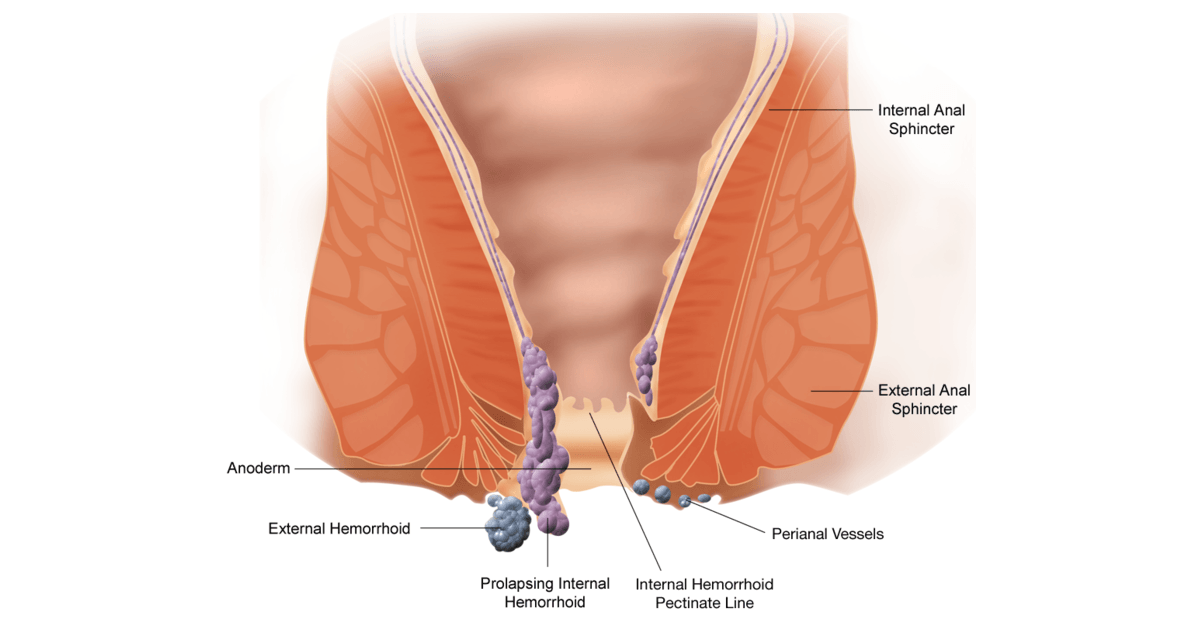Piles during pregnancy: causes, symptoms, prevention and treatment

Medically reviewed by
Dr. Shuddhatam Jain
Introduction
Piles, also known as hemorrhoids, are swellings in or around your bottom (anal canal)that contain swollen blood vessels. Piles can happen to anyone, not just pregnant women. However, it is a common condition that many pregnant women suffer from, especially during their third trimester.
Causes of piles during pregnancy
The common factors that may lead to the development of piles during pregnancy are:
• Hormones :
Progesterone is a hormone produced by the body that relaxes the walls of blood vessels, allowing for improved blood circulation during pregnancy. The blood vessels may enlarge as a result of this.• Increased pressure :
The growing baby in the uterus causes the veins under the skin to enlarge and stretch. This increases the pressure on the veins surrounding the rectum and anus, causing them to become swollen.• Constipation :
The strain on the rectum and anus increases as the foetus grows, slowing bowel movement and causing constipation. Constipation leads to constant strain when passing feces, which can cause piles.Symptoms of piles during pregnancy
Various symptoms that may appear during pregnancy because of piles are as follows
• Itching, aching, soreness, or swelling around the anus are all symptoms of piles.
• Painless bleedingafter passing stool which gets unnoticed at times.
• After passing stools, a mass outside the anus may need to be pushed back in.
• A constant feeling of fullness in the rectum even post defecation.
How to avoid piles during pregnancy?
Some ways through which piles can be avoided or eased during pregnancy are:
• Waiting too long to pass movements can cause feces to become tougher and drier. It's best to pass stools as soon as the need strikes.
• To make bowel movements smooth and simple, drink plenty of fluids such as soups, broth, and juices in addition to plain water.
• For an easy and smooth bowel movement, eat a balanced diet rich in fruits, green vegetables, and other high-fiber foods like wholemeal bread, brown rice, and cereals.
• Constipation is one of the main causes of piles during pregnancy; stay hydrated and maintain a nutritious diet to avoid constipation.
• Avoid eating oily and spicy foods.
• Exercise regularly for 30 minutes and avoid sitting for long periods.
• Constipation can also be avoided by doing guided pelvic floor exercises to improve pelvic muscles.
Treatment for piles
Piles most typically form during the third trimester of pregnancy and may go away completely without treatment after delivery when hormone levels, blood volume, and intra-abdominal pressure drop. However, if the condition persists, certain non-surgical treatment options may be prescribed by the doctor. They are:
• Soaking in a bath with witch hazel or Epsom salts.
• Consuming laxatives that can help soften stools and lead to smooth bowel movements.
• Applying topical treatments, such as creams and ointments that contain safe pain-relieving or anti-inflammatory substances.
• Oral prescription medicines can also be used; however, it may depend on your stage of pregnancy.
Surgical procedures
If the piles are huge or causing extreme discomfort, then your doctor may suggest a few surgical procedures such as:
Hemorrhoidectomy:
It is an open surgical treatment that removes hemorrhoids from the body.Stapled hemorrhoidopexy:
The hemorrhoidal tissue is reinserted into the anus and secured with surgical staples.Laser Treatment:
Laser Surgery is a sophisticated surgical method that cures an afflicted area with high-intensity laser beams. It is a minimally invasive process that does not require any cuts or stitches in the body, making it better than standard surgery.Benefits of laser surgery
The laser treatment achieves the desired effect with excellent precision and speeds up the healing process.
It also has a lower risk ratio and can be easily performed during pregnancy or after childbirth.
There is also a lower chance of recurrence, and patients are usually discharged within a day or two after laser surgery.
Conclusion
Hemorrhoids are a common condition during pregnancy and after childbirth. It may clear up on its own over time without any treatment.
You can attempt a variety of home remedies, but you may require medical attention if the problem persists. Any treatment that may impact your pregnancy should be discussed with your doctor before you undergo it.